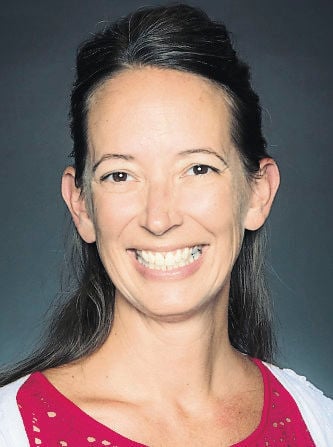The past few months have been unusually busy for my husband, John, and me. We have decluttered our house, sold it, packed everything we own and moved to a different state. As we weed through all the boxes, it’s easy for us to get overwhelmed. Have you ever felt this way during life changes? Do you ever struggle to make simple decisions? There is a term for this challenge — “decision fatigue.”
Decision fatigue is the difficulty in making a good decision among the number of decisions needed. When the quantity and speed of decisions are overwhelming, the simplest request, like “What’s for dinner?” can set me over the edge.
My journey began four months ago when John and I entertained the idea of moving closer to family. Within a few weeks, we toured five homes in central Wisconsin before finding the perfect place. Once we submitted an offer on the new house, the realtors, bankers and insurance agents moved quickly to process the paperwork.
Here was the first moment I experienced decision fatigue.
Within two minutes, my realtor was calling me, my husband was texting me, an email arrived from my banker and my business phone was ringing. Everyone needed answers to their questions and every request was urgent. Do you want a home inspection? Who will do the septic inspection? When will your current home be listed? I felt like hyperventilating as more requests came bombarding me.
Ignoring the requests or putting the messages aside was not an option. I needed to figure out how to prioritize the questions, choose an answer and move on to the next need. The following phrases have become coping tools for John and me to keep moving forward.
“Just make a decision.”
I have opened many boxes this past week, looked at the contents, and then closed the box and set it aside. I didn’t want to decide what to do with the stuff inside the box. This habit doesn’t help in the unpacking process. The key is to make a decision the first time you handle the box so that you can remove the container from the pile.
Similar to your email inbox. Make a decision about the email the first time you open it. Otherwise, you will have an overcrowded inbox with undone projects. In other words, you will have clutter!
“I’m frozen. Tell me what to do.”
Who are you partnering with during this journey in life? It might be a spouse, coworker, friend or stranger. We need people.
There have been many moments where John and I freeze with decision fatigue. We see all that needs to be done and try to make a decision, but we just can’t.
At this point, we say to the other, “Please just tell me what to do.” Normally neither of us likes to be told what to do however. In this example, we are giving permission to the other for the sake of productivity.
Not having to decide on what to do next, yet still making progress seems to rejuvenate us for the next decision.
“Unpack one box at a time.”
Earlier this week, I had an online meeting and could not find the power cord to my computer. I quickly opened multiple boxes, yet failed to find the needed tools. Thankfully my computer had enough power to get through the meeting.
Later in the day, rather than searching for one specific item, I gave myself 45 minutes to unpack a few boxes. Guess what I found? When I wasn’t panicked and rushed, I found the power cord in a random box.
When intimated and overwhelmed by the big picture, isolate and address one challenge at a time. It is impossible to take on everything at once. Why do we expect it from ourselves?
Focus on one box, empty the contents, choose where to put the items, break down the box, add it to the recycling pile and move on to the next box. Your pile will decrease with this approach.
“Treat yourself.”
There is a lot of work to do, but it can’t be all work and no play. I need something to look forward to in my day to keep me pressing forward. One reward is to follow a routine or habit I enjoy, like exercising. The healthy side effects keep me physically and mentally strong when I return to work.
Another treat is to rest. When the body is tired, the mind is weak and crabby. Take a power nap to rejuvenate your mind and body to conquer more boxes later.
To avoid decision fatigue means that I would miss out on life’s adventures. I prefer to embrace the opportunity to practice these coping skills, create a habit of decision making and welcome simple requests like, “What’s for dinner?”
If you’d like to see us in a frazzled and emotional state, plus learn how our brain works better during certain times of the day, check out podcast episode No. 160 at www.youtube.com/watch?v=q5E1gZlqb0o


